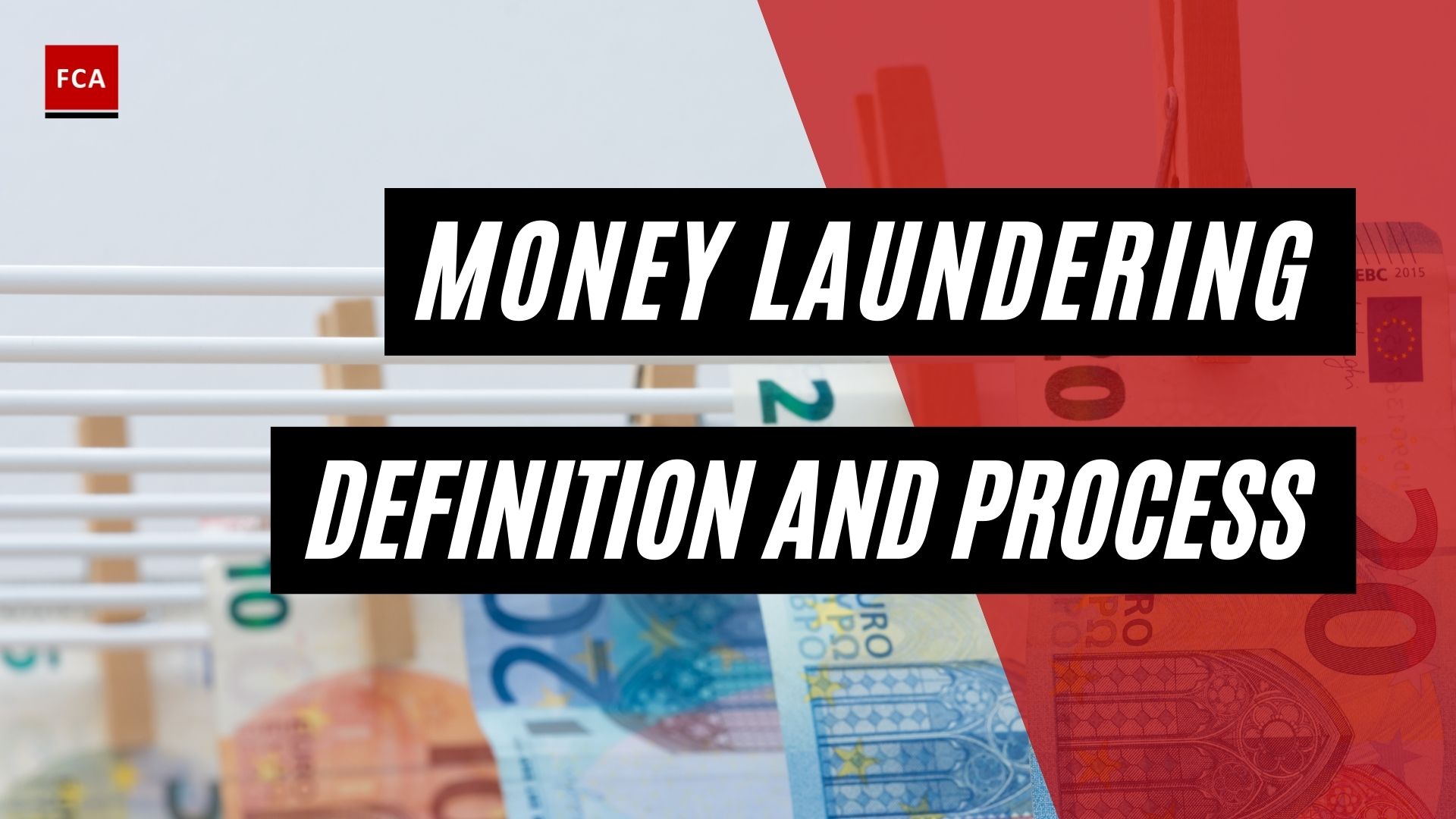Understanding Money Laundering in the Banking Sector
Money laundering is a serious issue that affects the banking sector and the global economy as a whole. By understanding the concept of money laundering and the importance of anti-money laundering laws, we can better comprehend the efforts made to combat this illicit activity.
What is Money Laundering?
Money laundering involves disguising financial assets to use them without detection of the illegal activity that produced them, allowing criminals to transform the monetary proceeds derived from criminal activity into funds with an apparently legal source (FinCEN). The process typically involves three stages: placement, layering, and integration. During the placement stage, illicit funds are introduced into the financial system. In the layering stage, transactions are conducted to obscure the origin of the funds. Finally, in the integration stage, the laundered money is reintroduced into legitimate economic activities, making it difficult to trace its illicit origins.
Importance of Anti-Money Laundering Laws
The fight against money laundering is crucial to maintaining the integrity of the banking sector and preventing the harmful consequences associated with it. Money laundering provides fuel for drug dealers, terrorists, arms dealers, and other criminals to operate and expand their enterprises, and has devastating social consequences (FinCEN).
To combat money laundering effectively, governments and regulatory bodies have implemented a range of anti-money laundering (AML) laws and regulations. These laws require financial institutions, such as banks, to establish robust compliance programs, conduct customer due diligence, monitor transactions for suspicious activities, and report any suspicious transactions to financial intelligence units (FIUs).
Key anti-money laundering regulations include:
-
The Bank Secrecy Act (BSA): Enacted in 1970, the BSA was the first major piece of anti-money laundering legislation in the United States. It requires financial institutions to assist government agencies in detecting and preventing money laundering by keeping records of cash transactions above a specified threshold and filing reports on suspicious activities (Investopedia).
-
The USA PATRIOT Act: Passed in response to the 9/11 terrorist attacks, the USA PATRIOT Act expanded the scope of anti-money laundering regulations in the United States. It introduced measures to enhance customer identification procedures, facilitate information sharing between financial institutions and law enforcement agencies, and combat terrorist financing (Investopedia).
-
International Anti-Money Laundering Laws: Various international treaties, conventions, and organizations play a vital role in combating money laundering globally. The European Union has implemented directives aimed at preventing money laundering and terrorist financing, while the Financial Action Task Force (FATF) sets international standards and promotes effective implementation of AML measures across nations.
By establishing and enforcing these regulations, authorities aim to deter and detect money laundering activities, protect the integrity of the financial system, and contribute to the overall stability of the global economy.
Understanding money laundering and the importance of anti-money laundering laws is essential for the banking sector and society as a whole. By staying informed about these issues, financial institutions can play a vital role in preventing money laundering, safeguarding their customers, and maintaining trust in the banking system.
Key Anti-Money Laundering Regulations
To combat the pervasive issue of money laundering, various regulations and laws have been established at both national and international levels. These regulations aim to prevent illicit funds from being integrated into the legitimate financial system. Three key anti-money laundering regulations are the Bank Secrecy Act (BSA), the USA PATRIOT Act, and international anti-money laundering laws.
The Bank Secrecy Act (BSA)
The Bank Secrecy Act (BSA) of 1970 was the first major piece of anti-money laundering legislation in the United States. Its primary objective is to detect and prevent money laundering activities within the banking system. The BSA requires financial institutions to keep records of cash transactions exceeding a certain threshold, file reports on suspicious activities, and establish anti-money laundering compliance programs. By requiring financial institutions to maintain transparency and report suspicious transactions, the BSA helps to deter and uncover potential money laundering schemes (Investopedia).
The USA PATRIOT Act
In response to the events of September 11, 2001, the United States enacted the USA PATRIOT Act. This act significantly expanded the scope of anti-money laundering laws in the country. The USA PATRIOT Act introduced measures to enhance the detection and prevention of money laundering, terrorist financing, and other financial crimes. It granted broader authority to regulatory agencies, required increased customer identification and due diligence, and facilitated information sharing between financial institutions and law enforcement agencies. The act also established the Financial Crimes Enforcement Network (FinCEN) as the primary agency responsible for combating money laundering and enforcing the related regulations (Investopedia).
International Anti-Money Laundering Laws
Money laundering is a global issue that requires international cooperation and coordination. Various international anti-money laundering laws and regulations have been established to combat the cross-border nature of money laundering. For example, in the United Kingdom, the Proceeds of Crime Act 2002 and the Money Laundering Regulations 2007 lay out the anti-money laundering laws. The European Union has also enacted directives to prevent money laundering and terrorist financing. These directives outline regulations that must be followed by financial institutions and other entities within EU member states.
At the international level, United Nations crime suppression treaties and resolutions, along with other customary norms, form the basis of anti-money laundering efforts. The 1988 UN Convention against Illicit Traffic in Narcotic Drugs and Psychotropic Substances was the first major international treaty to address money laundering related to drug crimes. Subsequent conventions, such as the 2000 UN Convention against Transnational Organized Crime and the 2003 UN Convention against Corruption, expanded the scope of anti-money laundering measures to combat organized crime and corruption.
These key anti-money laundering regulations at national and international levels play a crucial role in preventing money laundering and ensuring the integrity of the financial system. Compliance with these regulations is essential for financial institutions and other entities to detect and report suspicious transactions, thereby contributing to the global fight against money laundering.
Consequences of Non-Compliance
When it comes to anti-money laundering (AML) regulations, non-compliance can have serious consequences for financial institutions. These consequences can range from AML penalties and fines to sanctions and business restrictions. It is essential for banks and other financial organizations to understand and adhere to these regulations to avoid detrimental outcomes.
AML Penalties and Fines
Financial organizations that violate AML regulations can face civil and criminal penalties. These penalties can vary depending on the jurisdiction and the severity of the offense. In the United States, the Bank Secrecy Act (BSA) of 1970 establishes compliance obligations on financial institutions and imposes significant penalties, including fines of up to $500,000 and imprisonment for up to ten years. The USA PATRIOT Act also requires banks and financial institutions to understand their AML compliance obligations, and violations can result in fines of $1 million or double the value of the transaction (Unit21). Additionally, violations of Office of Foreign Assets Control (OFAC) sanctions regulations can lead to fines and penalties of up to $20 million, depending on the type of offense, along with imprisonment of up to 30 years.
Sanctions and Business Restrictions
Non-compliance with AML regulations can also result in sanctions and business restrictions. Financial institutions that fail to implement effective AML measures may face sanctions imposed by regulatory authorities. These sanctions can include being barred from conducting certain types of business transactions or being restricted from operating in specific jurisdictions. Sanctions not only have financial implications but also damage the reputation and credibility of the institution involved.
The economic and reputational consequences of non-compliance extend beyond individual institutions. Inadequate AML measures can lead to the loss of public trust in the banking sector as a whole. Governments and regulatory bodies are increasingly committed to combating money laundering and are taking stronger actions to ensure compliance.
Financial institutions must prioritize AML compliance to avoid the severe consequences of non-compliance. It is crucial for these institutions to establish robust AML programs, implement thorough training for employees, and continuously update their systems to stay ahead of evolving money laundering techniques. By doing so, financial institutions can protect themselves, their customers, and the integrity of the global financial system.
Anti-Money Laundering Measures in the Banking Sector
To combat money laundering in the banking sector, financial institutions are subject to various compliance obligations. These obligations aim to ensure that banks have robust systems and processes in place to detect and prevent illicit financial activities. Additionally, regulatory bodies play a crucial role in overseeing and enforcing these measures. One such organization is the Financial Industry Regulatory Authority (FINRA).
Compliance Obligations for Financial Institutions
Financial institutions have a responsibility to implement comprehensive anti-money laundering (AML) programs to meet their compliance obligations. These programs include:
-
Customer Due Diligence (CDD): Banks are required to conduct thorough due diligence on their customers to understand their identity, source of funds, and the purpose of their transactions. This helps identify and mitigate the risk of money laundering.
-
Transaction Monitoring: Financial institutions must implement robust systems to monitor customer transactions in real time. This allows them to identify suspicious activities and report them to the appropriate authorities as required.
-
Suspicious Activity Reporting (SAR): Banks are obligated to file SARs for any transactions or activities that raise suspicions of money laundering or other illegal activities. These reports provide valuable information to law enforcement agencies for further investigation.
-
Employee Training: Financial institutions are required to provide regular training to their employees on AML policies and procedures. This ensures that staff members are knowledgeable about their obligations and can effectively identify potential money laundering red flags.
Role of Financial Industry Regulatory Authority (FINRA)
FINRA, a self-regulatory organization, plays a vital role in overseeing compliance with AML regulations in the United States. It provides guidance, rules, and resources for financial industry professionals to fulfill their AML obligations. Some key functions of FINRA include:
-
Registration and Compliance: FINRA is responsible for registering and regulating brokerage firms and registered representatives in the United States. It ensures that these entities adhere to AML regulations and meet their compliance obligations.
-
Enforcement Actions: FINRA has the authority to investigate and take disciplinary actions against member firms and individuals for AML violations. This includes imposing fines, suspensions, or even expulsions from the industry.
-
Education and Training: FINRA offers educational resources and tools to industry professionals, including registered representatives. These resources help enhance their understanding of AML compliance requirements and enable them to fulfill their continuing education obligations.
By establishing and enforcing compliance obligations, along with the oversight provided by organizations like FINRA, the banking sector aims to prevent money laundering and protect the integrity of the financial system.
In the next sections, we will explore the role of the Financial Crimes Enforcement Network (FinCEN) in collecting and analyzing financial transaction information as well as recent developments in anti-money laundering enforcement. Stay tuned to learn more about these important aspects of the fight against money laundering.
The Role of Financial Crimes Enforcement Network (FinCEN)
In the fight against money laundering and other financial crimes, the Financial Crimes Enforcement Network (FinCEN) plays a crucial role. As a bureau of the U.S. Department of the Treasury, FinCEN is responsible for collecting and analyzing information about financial transactions to combat domestic and international money laundering, terrorist financing, and other financial crimes.
Collecting and Analyzing Financial Transaction Information
One of FinCEN’s primary functions is to collect and analyze financial transaction information from various sources, including financial institutions, money services businesses, and other organizations. This information includes reports on suspicious transactions, currency transactions above certain thresholds, and foreign bank and financial accounts.
Through its Bank Secrecy Act (BSA) regulations, FinCEN requires financial institutions to establish and maintain comprehensive anti-money laundering (AML) programs and monitor customer transactions for suspicious activity. The collected data is then analyzed to identify patterns, trends, and potential indicators of money laundering or other illicit activities. This analysis helps law enforcement agencies and regulatory authorities in detecting, investigating, and prosecuting financial crimes.
Combating Money Laundering and Financial Crimes
FinCEN plays a key role in combating money laundering and financial crimes by collaborating with domestic and international partners. It shares information and intelligence with law enforcement agencies, regulatory authorities, and other financial intelligence units (FIUs) to support investigations and enforcement actions.
In addition to collecting and analyzing financial transaction information, FinCEN also develops and implements regulations and guidance to enhance the effectiveness of AML efforts. It works closely with the private sector to ensure compliance with AML regulations and provides training and resources to help financial institutions and other entities recognize and report suspicious activity.
Furthermore, FinCEN actively participates in international efforts to combat money laundering. It cooperates with other FIUs and organizations such as the Financial Action Task Force (FATF), an international policy-making and standard-setting body working to combat money laundering and terrorism financing. By aligning global efforts and promoting the adoption of consistent AML standards, FinCEN contributes to the overall effectiveness of the international fight against money laundering.
Through its collection and analysis of financial transaction information, along with its collaboration with domestic and international partners, FinCEN plays a vital role in deterring and detecting money laundering and other financial crimes. Its efforts contribute to the overall integrity and stability of the financial system and help protect society from the devastating consequences of money laundering (FinCEN).
Recent Developments in Anti-Money Laundering Enforcement
As the fight against money laundering continues, recent developments in anti-money laundering (AML) enforcement have highlighted the increased focus on AML and sanctions by the Biden administration. Additionally, there have been notable changes in the anti-money laundering framework to strengthen efforts in combating illicit financial activities.
Biden Administration’s Focus on AML and Sanctions
In 2023, the Biden administration placed a significant emphasis on investigations and prosecutions related to national security and the Corporate Transparency Act. This focus underscores the administration’s commitment to combating money laundering and enforcing sanctions, recognizing the crucial role these efforts play in safeguarding the financial system and national security (Gibson Dunn).
The increased attention given to AML and sanctions signifies the administration’s determination to address the evolving threats posed by money laundering schemes and illicit financial activities. By prioritizing these areas, the administration aims to strengthen the effectiveness of AML regulations and enhance the ability to disrupt and dismantle criminal networks involved in money laundering.
Changes in the Anti-Money Laundering Framework
To bolster the fight against money laundering, there have been notable changes in the anti-money laundering framework. These changes aim to enhance the regulatory environment and ensure the financial system remains resilient to illicit financial activities.
One crucial component of the anti-money laundering framework is the USA PATRIOT Act of 2001. Enacted in response to the events of September 11, 2001, this legislation significantly expanded the scope of anti-money laundering laws in the United States (Investopedia). It provided law enforcement agencies with additional tools to detect, prevent, and prosecute money laundering and terrorist financing activities.
Internationally, efforts to combat money laundering have been advanced through various treaties and conventions. The international law of money laundering is established in United Nations crime suppression treaties, resolutions, and soft law. These measures include criminalizing money laundering, enabling the freezing and confiscation of crime proceeds, and facilitating legal cooperation between states.
The continuous evolution of the anti-money laundering framework reflects the commitment of governments and international bodies to stay ahead of emerging threats in the financial sector. By adapting to new challenges and strengthening regulations, authorities aim to create a robust framework that promotes transparency, integrity, and accountability in financial transactions.
Understanding recent developments in anti-money laundering enforcement is essential for financial institutions and professionals involved in combating money laundering. By staying updated on changes in regulations and enforcement priorities, they can effectively contribute to the global fight against money laundering and its detrimental effects on society.
The fight against money laundering is an ongoing battle, and it requires the collective efforts of governments, regulatory bodies, financial institutions, and individuals to ensure the integrity of the global financial system.
Global Efforts to Combat Money Laundering
In the fight against money laundering, international cooperation and coordination are vital. Several international treaties, conventions, and organizations have been established to combat this global issue and strengthen anti-money laundering (AML) efforts. Two key aspects of these global efforts are international treaties and conventions, as well as the Financial Action Task Force (FATF).
International Treaties and Conventions
The international law of money laundering is established in various United Nations crime suppression treaties, resolutions, and soft law. These include the 1988 UN Convention against Illicit Traffic in Narcotic Drugs and Psychotropic Substances, the 2000 UN Convention against Transnational Organized Crime, and the 2003 UN Convention against Corruption (Oxford Bibliographies). These treaties and conventions emphasize the importance of criminalizing money laundering, enabling the freezing and confiscation of illicit proceeds, establishing financial intelligence units (FIUs), and fostering international cooperation among states.
Through these international agreements, countries commit to implementing AML measures within their domestic laws to combat the flow of illicit funds and prevent corruption within political spheres (U4). Such measures are essential due to the global nature of money laundering and its impact on society and economies.
Financial Action Task Force (FATF)
The Financial Action Task Force (FATF) is an international policy-making and standard-setting body focused on combating money laundering and terrorism financing. Established in 1989, the FATF plays a significant role in developing and implementing international AML laws across nations.
The FATF sets global standards and recommendations for AML and counter-terrorism financing measures. Its recommendations, commonly known as the FATF Recommendations, provide a comprehensive framework for countries to establish effective AML regimes and combat the risks associated with money laundering.
Member countries of the FATF, as well as other jurisdictions, are regularly assessed through mutual evaluations to ensure compliance with the FATF Recommendations. These evaluations help identify areas of improvement and encourage countries to adopt robust AML measures.
The FATF also collaborates with other international organizations, such as the United Nations, World Bank, and International Monetary Fund, to strengthen the global fight against money laundering and enhance the integrity of the international financial system.
By promoting international cooperation, establishing standards, and conducting evaluations, the FATF plays a crucial role in facilitating the implementation of effective AML measures worldwide. This enables countries to align their efforts and collectively combat money laundering.
The international treaties, conventions, and the work of the FATF demonstrate the global commitment to combating money laundering and the importance of international cooperation in addressing this significant financial crime. Through these collaborative efforts, countries aim to restrict the flow of illicit funds, prevent corruption, and safeguard the integrity of the global financial system.
The Social and Economic Impact of Money Laundering
Money laundering, a process that involves disguising the origins of illegally obtained funds, has far-reaching social and economic implications. Let’s explore two key aspects of its impact: fueling criminal enterprises and the devastating consequences for society.
Fueling Criminal Enterprises
Money laundering provides the necessary resources for various criminal enterprises to operate and expand. Criminals engaged in drug trafficking, terrorism, arms dealing, and other illicit activities rely on money laundering to conceal the true source of their funds. By doing so, they are able to use the money for further criminal activities, making it difficult for law enforcement agencies to trace and disrupt their operations (FinCEN). The availability of laundered funds helps criminal organizations thrive and perpetuate their illegal activities, posing significant threats to public safety and security.
Devastating Consequences for Society
The consequences of money laundering extend beyond the illicit activities it supports. Money laundering undermines the integrity of financial systems, erodes public trust, and hampers economic growth. When illicit funds are integrated into the legitimate economy, it distorts competition, disrupts markets, and creates unfair advantages for those involved in illegal activities. This can lead to increased costs for businesses and consumers, hindering economic development and prosperity.
Moreover, money laundering contributes to the erosion of public trust in financial institutions and the overall financial system. When individuals perceive that financial institutions are vulnerable to being exploited for illicit purposes, it undermines confidence in the system as a whole. This loss of trust can have long-term repercussions, affecting investment decisions, financial stability, and the overall functioning of the economy.
To combat the social and economic impact of money laundering, international anti-money laundering laws and regulations have been put in place. These laws aim to prevent the concealment of the origins of illegally obtained funds and ensure that financial institutions adhere to strict reporting and prevention measures. Non-compliance with these laws can result in severe consequences, including economic sanctions, reputational damage, and legal actions against individuals or entities involved in money laundering activities (U4).
Efforts to combat money laundering require collaboration among governments, financial institutions, and international organizations. By addressing the social and economic impact of money laundering through effective enforcement of anti-money laundering laws, societies can strive to protect their financial systems, promote transparency, and create a more secure environment for economic growth.
The Social and Economic Impact of Money Laundering
Money laundering, the process of disguising the origins of illicitly obtained funds, has far-reaching consequences on society and the economy. By enabling criminals to transform the proceeds of their illegal activities into seemingly legitimate assets, money laundering provides fuel for drug dealers, terrorists, arms dealers, and other criminals to operate and expand their enterprises. Let’s explore the social and economic impact of money laundering in more detail.
Fueling Criminal Enterprises
Money laundering plays a crucial role in the success and sustainability of criminal enterprises. By washing illicit funds, criminals are able to integrate their proceeds back into the legal economy, making it difficult for law enforcement agencies to trace the money back to its criminal origins. This allows criminals to expand their operations, fund further illegal activities, and perpetuate a cycle of criminality.
The effects of money laundering are particularly evident in the realm of organized crime. Criminal organizations, such as drug cartels and human trafficking networks, rely on the ability to hide and legitimize their ill-gotten gains. Money laundering provides these organizations with the means to invest in legitimate businesses, bribe officials, and gain influence and power.
Devastating Consequences for Society
Money laundering has devastating consequences for society as a whole. The funds laundered through illicit activities often come from criminal acts that harm individuals, communities, and societies. These may include drug trafficking, human trafficking, corruption, fraud, and other serious offenses.
The social impact of money laundering can be seen in various ways. Laundered funds may find their way into legitimate businesses, distorting competition and hindering economic growth. It can also lead to increased corruption, as illicit funds are used to bribe officials and undermine the integrity of public institutions. Furthermore, money laundering can perpetuate income inequality, as the proceeds of crime are concentrated in the hands of criminals while the rest of society bears the consequences.
From an economic perspective, money laundering poses significant challenges. It undermines the integrity of financial systems and erodes public trust in institutions. This can lead to reduced foreign investment, increased regulatory costs, and a loss of economic opportunities.
To combat the social and economic impact of money laundering, international efforts have been made to establish and enforce anti-money laundering laws. The Financial Action Task Force (FATF), an international policy-making and standard-setting body, has played a crucial role in developing and implementing these laws across various nations (U4). These measures aim to criminalize money laundering, enable the freezing and confiscation of crime proceeds, mandate the private sector to provide financial intelligence, establish financial intelligence units (FIUs), and facilitate legal cooperation between states due to the global nature of money laundering.
By strengthening anti-money laundering laws, promoting international cooperation, and raising awareness about the damaging effects of money laundering, societies can work towards mitigating its social and economic impact.









